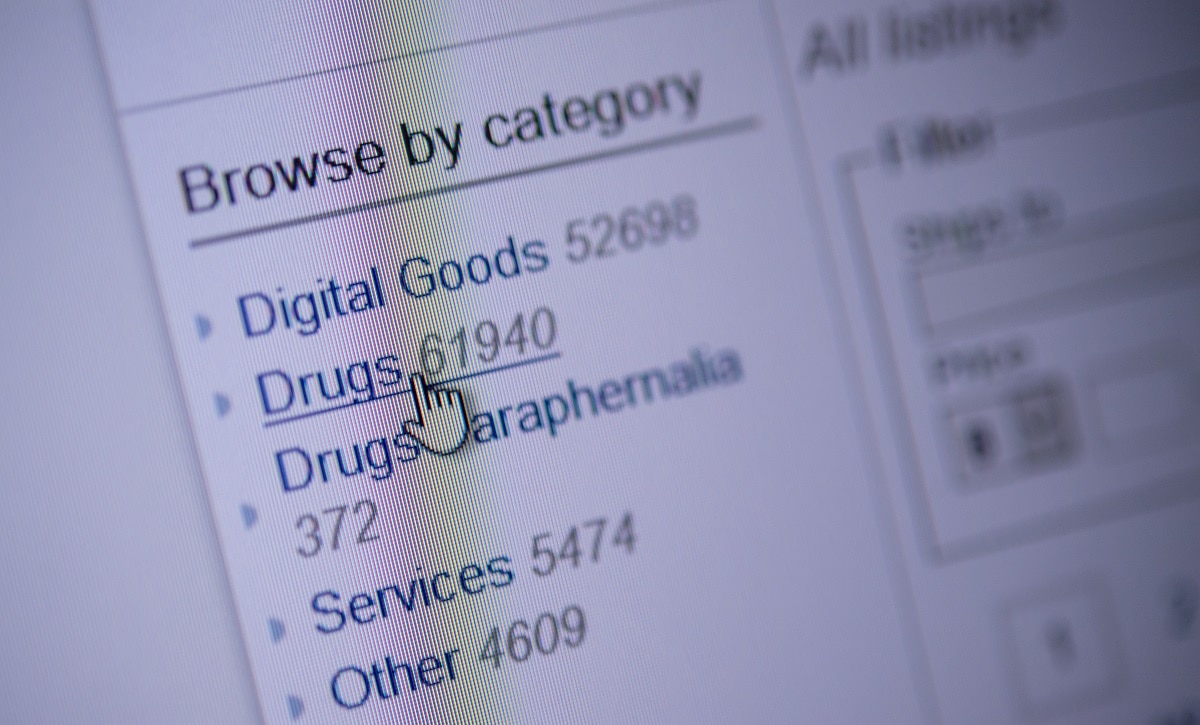Create a free profile to get unlimited access to exclusive videos, breaking news, sweepstakes, and more!
The Dream Of The Silk Road Is Alive On The Darknet
Ever since Ross Ulbricht’s revolutionary site Silk Road shuttered in 2013, there have been no shortage of similar marketplaces willing to fill the void — yet none have managed to maintain the level of trust that the original darknet bizarre did.

In 2013, Silk Road founder and darknet drug emperor Ross Ulbricht, AKA Dread Pirate Roberts (DPR), seemed convinced that his website was destined to become the catalyst for a revolution. After all, his site linked nearly 4,000 drug dealers around the world to sell their wares to more than 100,000 buyers, and could you get you anything from falsified documents to heroin — even a rocket launcher.
“We’re talking about the potential for a monumental shift in the power structure of the world,” Ulbricht, still in the shadows as DPR, told Forbes, just months before he was ultimately arrested. “Sector by sector the State is being cut out of the equation and power is being returned to the individual.”
But Ulbricht’s utopian prophecy was, of course, cut short.
He was eventually sentenced to life in prison over his experimental darknet market (DNM). Despite the harsh sentence, his Silk Road spawned a slew of copycats that managed to both expand and change the darknet playbook, resulting in monthly revenues in the tens of millions of dollars. But even though countless sites have risen and fallen while attempting to fill the void left by the originator over the years, no other market has managed to earn the confidence of customers like DPR’s original vessel.
“It’s safe to say the halcyon days of the DNMs is over,” Eileen Ormsby, author of the book “The Darkest Web,” wrote in a September blog post. “There have been too many failures and no market owner has earned the absolute trust that customers had in Silk Road.”
AlphaBay, considered the “the Amazon of the dark web,” and Dutch site Hansa, both became massive black markets —the hundreds of millions of dollars — before they were taken down the same day during Operation Bayonet in July 2017. Nowadays, Dream Market and The Wall Street Market seem to be running the most popular, profitable and robust drug markets on the darknet, continuing a trend that cuts out the middleman, brings contraband direct to consumers and continues to undermine law enforcement efforts to stamp out this new frontier on the world’s drug war.
Until July 2017, Dream Market was racking up roughly 20 new users every day, according to a recent report by independent Dutch research organization TNO. Afterward, that number increased to 60 per day, until eventually, Dream Market almost doubled its user base to roughly 16,000.
Luckily for new users, they can access handy how-to guides on how to access the site and make the most of their shopping experiences. Sites like Dark Web News and, for a time, Reddit, provided step-by-step guides on everything from accessing the site to navigating and purchasing from the various vendors on it.
“The fact that Dream Market is bigger and stronger than ever shows how committed the team is to make the site one of the most secure on the dark web,” the guide says.
But that might not might be the case for long: In addition to the site currently experiencing what Ormsby reckoned to be sustained dDos attack, a cyber onslaught in which hostile actors try to prevent a website from being available to usersU.S. law enforcement agencies like the DEA and FBI have been investigating the former since 2013 and targeting its high-profile sellers.
But this localized, whack-a-mole-esque methodology is lacking, according to some experts.
“Law enforcement tends to cycle through the top four [markets] and devote their resources to taking those down...Dream was up and running in 2013, but it didn’t reach the top until AlphaBay and Hansa were taken down,” Eric Jardine, an assistant professor of political science at Virginia Tech and a former fellow at the Center for International Governance Innovation (CIGI), told Oxygen.com. “There’s a mismatch between the structure [of the darknet] which is global, and the jurisdictional model of law enforcement and politicians.”
Though he maintained that international task forces are a crucial part of law enforcement initiatives aimed at taking down darknet drug sites, Jardine said that there are other, more subtle ways of disrupting these DNMs, such as messing with their market dynamics.
Take, for example, what happened on Dream Market in Sept. 2017.
The site went down down for multiple hours, according to Motherboard, and when it was back up, users’ bitcoins were missing, prompting many to say the site was a scam.
It seemed as if users longed for those “halcyon days” of Silk Road, AlphaBay and Hansa: A few months later, a Jan. 2018 survey found that 15 percent of those who were using darknet sites to get their narcotics used such markets with less frequency since AlphaBay and Hansa were taken down, while 9 percent had simply stopped using them, according to the UNODC’s 2018 drug report.
The same survey found that most common reasons for these DNMs to close were, in fact, due to exit scams, which is when operators suddenly close down their sites and pocket all the money held in escrow accounts (which hold cryptocurrencies before a particular transaction is signed off on). Meanwhile, law enforcement was found to be the third most-common reason for site closures.
Ormsby noted that despite markets like Dream and Wall Street operating under similar guidelines as the original Silk Road — “point’n’click,” or like shopping on Amazon, if it was full of contraband — these exit scams have put a dent in the confidence in darknet customers.
“This has caused a market shift of dealers to private deals via Wickr, Telegram, Discord, etc. of dealers who had established a good reputation on the point’n’click markets,” she told Oxygen.com over email, adding that Dream Market appears to be under a constant dDos attack presently. “A lot of customers stopped using the centralized markets and just make private deals with their favorite dealers now.”
Ormsby noted that law enforcement agencies have seized on the fear, uncertainty and doubt that has washed over darknet marketplaces following the high-profile takedowns and exit scams. But the mass exoduses to smaller markets after a big takedown causes its own issues afterward.
“Moving away from centralization is a bit of a nightmare for [law enforcement] because instead of concentrating on one big player, there are now thousands of smaller players scattered all over the dark web,” she said.
But for Jardine, such trust issues are part and parcel to ways in which these markets can be brought down permanently.
“Disruption is the Achilles' heel for all of these markets,” he said. “If trust is destroyed, the market is destroyed.”






























